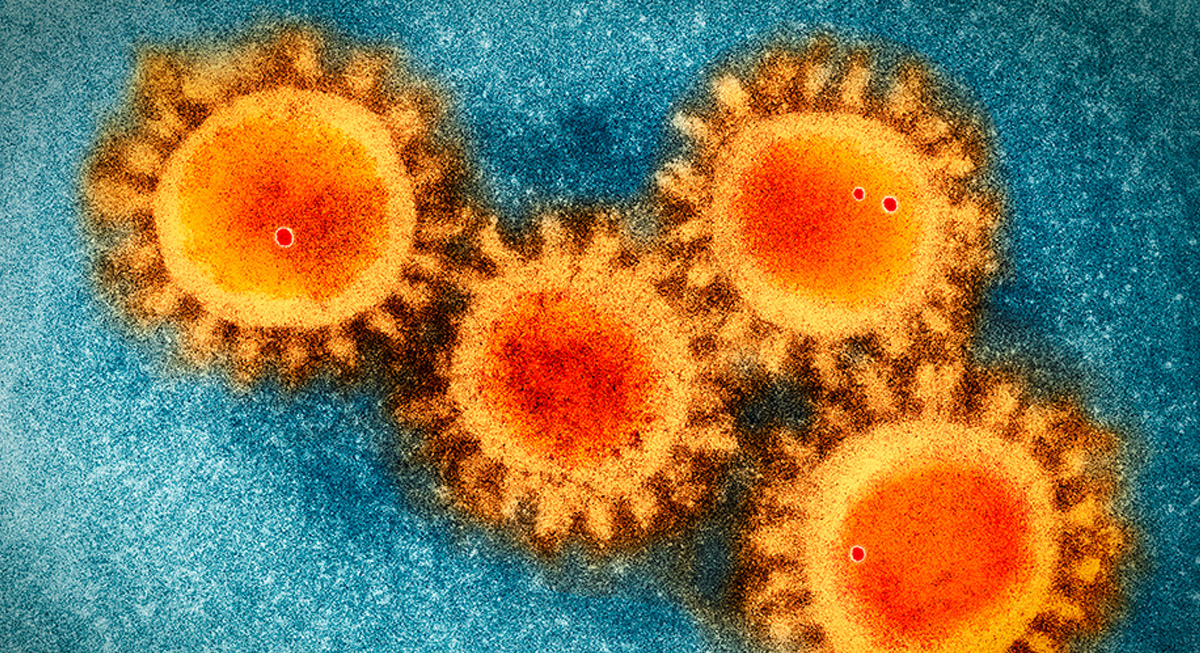
Scientists Say COVID-19 Coronavirus Has Natural Origins
March 25, 2020| |
The novel SARS-CoV-2 coronavirus that emerged in the city of Wuhan, China, in December 2019 and has since caused the COVID-19 pandemic, spreading to 170 countries and regions, is the product of natural evolution, according to findings published by scientists from the United States, United Kingdom, and Australia in Nature Medicine. The analysis of public genome sequence data from SARS-CoV-2 and related viruses found no evidence that the virus was made in a laboratory or otherwise engineered.
Shortly after the epidemic began, Chinese scientists sequenced the genome of SARS-CoV-2 and made the data available to researchers worldwide. The sequence data showed that the number of COVID-19 cases increased because of human to human transmission after a single introduction into the human population. The scientists then analyzed the genetic template for spike proteins, structures outside of the virus that it uses to grab and penetrate the outer walls of human and animal cells. They examined the two important features of the spike protein, the receptor-binding domain (RBD), a kind of grappling hook that grips onto host cells, and the cleavage site, a molecular can opener that allows the virus to crack open and enter host cells.
The scientists found that the RBD portion of the SARS-CoV-2 spike proteins evolved to effectively target a molecular feature on the outside of human cells called ACE2, a receptor involved in regulating blood pressure. The SARS-CoV-2 spike protein was so effective at binding the human cells, in fact, that the scientists concluded it was the result of natural selection and not the product of genetic engineering.
Coronaviruses are a large family of viruses that can cause illnesses ranging widely in severity. The first known severe illness caused by a coronavirus emerged with the 2003 Severe Acute Respiratory Syndrome (SARS) epidemic in China. A second outbreak of severe illness began in 2012 in Saudi Arabia with the Middle East Respiratory Syndrome (MERS). The Johns Hopkins Coronavirus Resource Center reports 422,989 COVID-19 cases as of March 25, 2020, with 18,916 deaths and 108,578 recoveries.
For more details, read the news from Scripps Research.
| |
You might also like:
- Viable Vaccine Candidate for COVID-19 Developed Using Proprietary Plant-based Technology
- Pocket K No. 15: 'Omics' Sciences: Genomics, Proteomics, and Metabolomics
- Pocket K No. 26: Molecular Pharming and Biopharmaceuticals
Biotech Updates is a weekly newsletter of ISAAA, a not-for-profit organization. It is distributed for free to over 22,000 subscribers worldwide to inform them about the key developments in biosciences, especially in biotechnology. Your support will help us in our mission to feed the world with knowledge. You can help by donating as little as $10.
-
See more articles:
-
News from Around the World
- Biotech Crops in the Pipeline to Improve Food Quality and Bring Environmental Benefits
- Local Government Officials Warn Scientists of Biotech Critics in Uganda
- US Proposes to Use Genetically Engineered Crops to Support Southeastern Wildlife Refuges
- Omega-3 Canola Oil Bound for Market by Second Quarter of 2020
- Most Americans Believe GMOs Likely to Improve Global Food Supply
- Russia to Expedite Genetic Technologies and Genome Editing for Public Health, Agriculture, and Industry
-
Research Highlights
- Researchers Develop Gene Disruption Method for Plant Pathogen
-
Plant
- Double Knockout of OsWRKY36 and OsWRKY102 Boosts Rice Lignification
-
Health
- International Seed Federation Calls on Governments to Facilitate Movement of Seeds in the Time of COVID-19
- Scientists Say COVID-19 Coronavirus Has Natural Origins
-
Read the latest: - Biotech Updates (December 3, 2025)
- Gene Editing Supplement (November 26, 2025)
- Gene Drive Supplement (February 22, 2023)
-
Subscribe to BU: - Share
- Tweet

